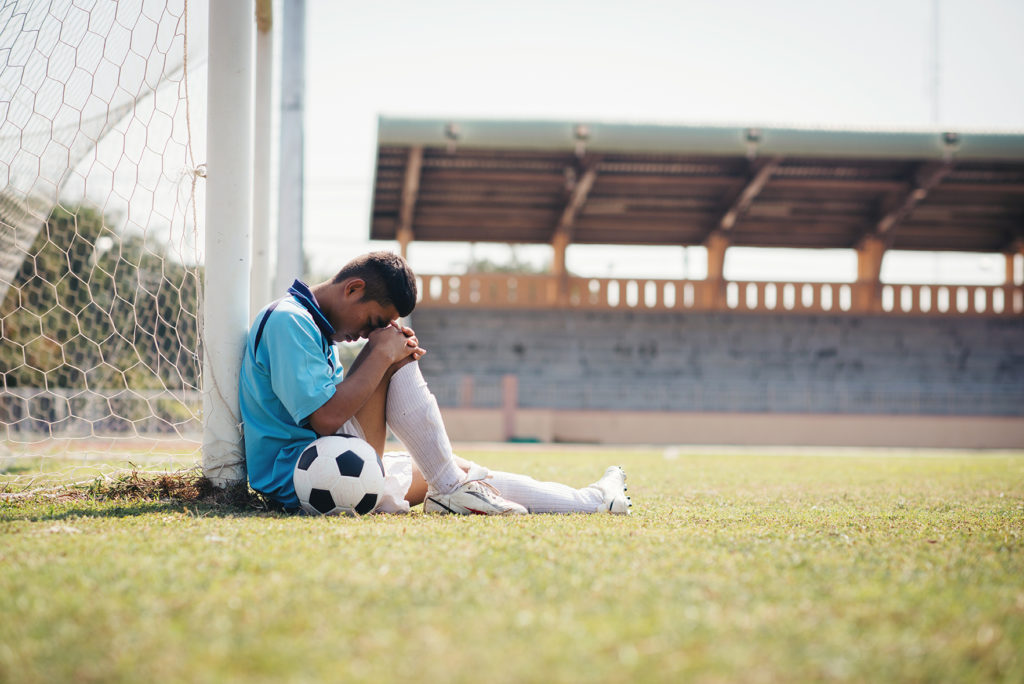5 Things You Can Say To Your Kid When They Lose The Big Game
Three out of four American families with school-aged children have at least one child playing an organized sport; a total of 45 million kids, according to the Boston Globe. Unfortunately by age 15, as many as 80 percent of these youngsters have quit. That adds up to a lot of games won and an equal number of games lost.
So, when your kid’s soccer team loses the big qualifying game, what can you, or guardians, caregivers, and coaches say to help them cope with the adversity of losing? Here are five things that experts say to keep in mind when talking to your kids after the game.
SAY NOTHING. GIVE A SOLID HUG AND LISTEN. Many parents feel that they need to swoop in right away and protect their kids from the difficult feelings that come with losing. And even some parents go further and engage in a post-game analysis and ask about specific plays, other teammates, the referee’s calls, or they even question the coach’s judgment. Coach Bruce Brown in his book Teaching Character Through Sport says that some kids need space, “When your child is ready to bring the game up and talk about it, be a quiet and reflective listener, and make sure she can see the big picture and not just the outcome of a single event. Help her work through the game, and facilitate her growth and education by guiding her toward her own answers.”
WHERE DO YOU WANT TO EAT? “Stick to your normal routine,” says Larry Lauer PhD from Michigan State University. “If you go to lunch after a win, do the same after a loss. Otherwise your child might relate the activities after the game with winning and losing.” Teach them that life goes on.
I HEAR YOU. I DON’T BLAME YOU FOR FEELING LIKE THAT. Younger kids may look to you for some comfort and confidence right after the game. Dr. Stacey Gains, associate professor in Health & Kinesiology at Texas A&M says that young kids “have a myriad of competing emotions rolling through their brains and what they need most is connection and stability. Many children don’t have the ability to separate their identity from their performance. So, if they lose, they tend to feel like they are a failure or a bad person. That’s when the personal connection with a parent or caregiver is vital. By listening and not trying to change their mind, you are teaching your child that their feelings matter.
IT’S OK. I THINK YOU DID A GREAT JOB AND I LOVE YOU. The National Alliance of Youth Sports says to shower your kids with praise. After you’ve connected and given your child room to process, and once you feel they are ready to engage, help them see the silver lining. Remind them of their strengths and abilities, “I’m proud of you. You know you are one of the fastest players on the team and a team player.”
I LOVE TO WATCH YOU PLAY. Researches have concluded that these six simple words are the best thing you can say to a child when they are confronted with the disappointment of losing. A 30-year study by Bruce E. Brown and Rob Miller of proactivecoaching.info found that what young athletes want to hear most from their parents are those words, “I love to watch you play.” Why? Because it is non-judgmental and they have your unconditional love and support.


